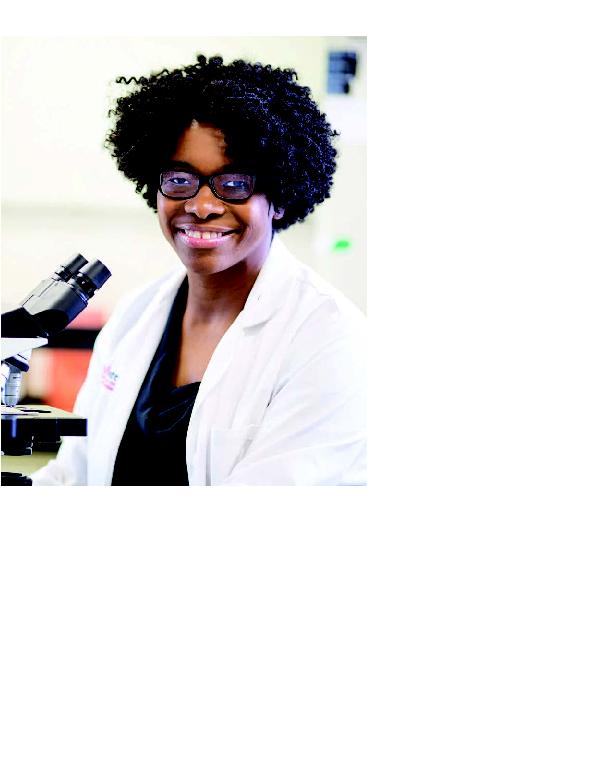
ing in the ER," she says. "As an infec-
tious disease consultant who oftentimes
is called in cases of sepsis, I am often
one of the first people a patient sees."
Dr. Desruisseaux says, "She is an in-
credible physician. Her knowledge base
and warm approach with patients and
staff make her a blessing to have
around.
success in each aspect of her life. She
is a loving mother, highly sought-after
physician, and top researcher in the
nate to have her as a colleague."
Medicine to volunteer in a hyperten-
sion clinic. "I fell in love with the
country. The people are so lovely and
so nice, and it was fulfilling for me; I
felt like I made a difference," she says.
"Here, we take our diagnostic tools
for granted--like MRIs and nuclear
medicine--and forget the art of taking
a patient's history. There, it was back
to basics, relying on the clinical skills
we first learned in medical school."
conditions in a low-income setting.
Mahalia is a rare combination."
In January 2010, she learned of the
deadly earthquake in Haiti, with esti-
mates of as many as 300,000 or more
lives lost and 1.5 million people dis-
placed. Her childhood home, where
she spent the first 12 years of her life,
was destroyed. An aunt was killed, as
well as a cousin and his young son.
her knowledge as a physician fluent in
Creole. "I felt so sick and helpless
watching the 24/7 news coverage," she
says. "After not having been back to
Haiti for 24 years, I felt a strong urge
to return and be part of a medical
relief effort."
pital in Port-au-Prince, treating patients
of all ages who were suffering from
broken bones, wound infections, or de-
hydration. After returning to New York,
she helped organize medical students to
gather medical supplies and nonperish-
able food for the people of Haiti.
T
E
S
Y
O
H
L
I
A
D
E
S
R
U
I
S
S
E
A
U
X
,
M
'
0